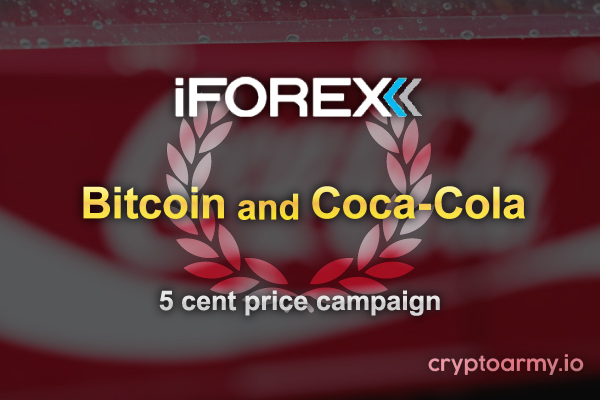Five Cents Coca-Cola: 1886 to 1959 Table of Contents

List of Cryptocurrency Brokers
Coca-Cola price was 5 cents in the beginning
Many people still has doubt about Bitcoin, the first Cryptocurrency.
But the big brand like Coca-Cola also has long history, and at the beginning the Coca-Cola price was sold 5 cents.
Coca-Cola’s history starts from the 19th century and their struggles came with inflation, market trend, laws and many other factors.
They were new to the world, just like Cryptocurrency in the 21st century.
We are not recommending you to invest in Crypto markets, but in this article, you can find out how Coca-Cola was sold in the beginning and compare the old times to now.
Coca-Cola was sold for 5 cents for 73 years
If one thing is certain is that every generation claims that in their time, prices were lower.
Such claims are usually right.
With very few exceptions, inflation is the inevitable outcome for global economy, and for the most part, controlled inflation is also a sign of a healthy economy.
However, Coca-Cola offers a very strange exception.
For 73 years straight you could have bought coke in the United States for a fixed price of 5 cents.
This is especially surprising because a lot has happened between 1886 and 1959.
For starters, Pepsi was founded.
Then there were significant events such as the First and Second World Wars, taxation changes, changing taxes and even a serious shortage of caramel and caffeine.
So, how did this happen? There are a few reasons.
Invest in Coca-Cola Stock with iFOREX
Market competitors back in time
First, a quick history lesson.
Back in 1886, the respectable pharmacist Dr. John Stith Pemberton, brought a new tasty syrup to a local pharmacy in Atlanta, where it was sold for exactly five cents per glass.
This was considered cheap even for the 1880s, but it made the drink more affordable than other fountain sodas that cost between seven and eight cents.
In 1899, Coca-Cola President Asa Candler sold the company’s bottling rights to a couple of lawyers for $1.
It’s possible that Candler believed the bottling business was doomed, since people back them got their sodas mainly from fountains.
The contract stated a fixed price, but no expiration date, so the company essentially promised to keep selling the bottles for the same price for ever and ever.
Never sign a contract (especially with a lawyer) without reading the fine print.
List of Cryptocurrency Brokers
Coca-Cola starts five-cent price campaign
To control the price bottlers charge, Coca-Cola started a hugely successful five-cent price campaign.
As a result, bottlers didn’t raise prices, but by the time Coca-Cola managed to renegotiate the bottling contract in 1921, rebranding was deemed too risky.
The final reason for the fixed price is very amusing: When vending machines first became popular, they couldn’t make change.
In 1950, Coca-Cola owned more than 85% of all vending machines in the U.S. The company worried that if customers need several coins instead of one, sales would drop significantly and didn’t want to use the next single-coin option: A dime, which would mean doubling the price overnight.
The company went as far as asking the United State Treasury Department to create a 7.5 cent coin in in 1953, but the idea was, not so surprisingly, rejected.
Finally, inflation has proved to be an undefeatable obstacle and in 1950 the company began to raise price to six cents.
By 1951 Coca-Cola abandoned the “five cents” campaign and by 1959 it sold its very last five cent coke.
Invest in Stocks and Cryptocurrency with iForex
At iFOREX you can invest in the share price of Coca-Cola and a number of Cryptocurrency assets, and learn a bit about inflation and how it affects your investments.
If you have a question, visit our education center or just register and contact your personal trading coach.
Please click "Introduction of iFOREX", if you want to know the details and the company information of iFOREX.






Comment by jetonwhy
February 16, 2025
Anyone else finding it weird that Deriv only allows deposits through Jeton and not bank transfers? They’ve removed crypto too, so now it’s just cards and Jeton. Kinda frustratin...